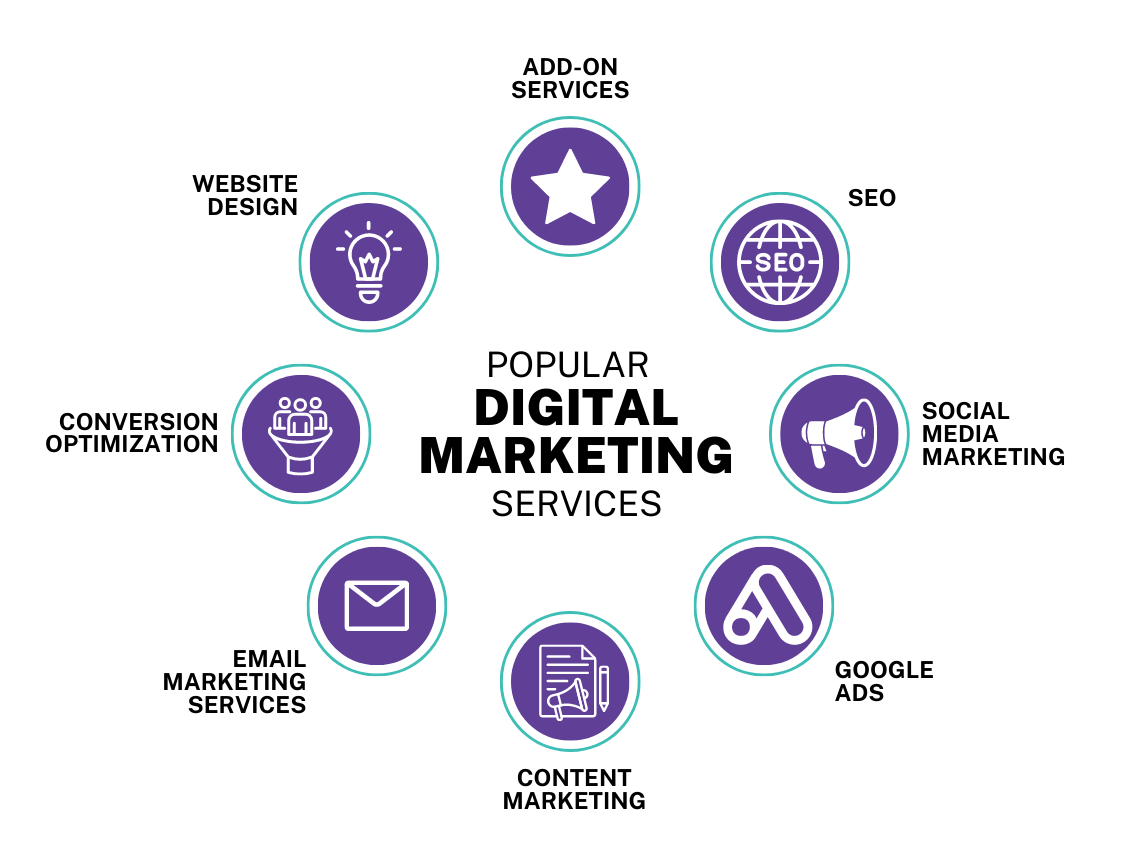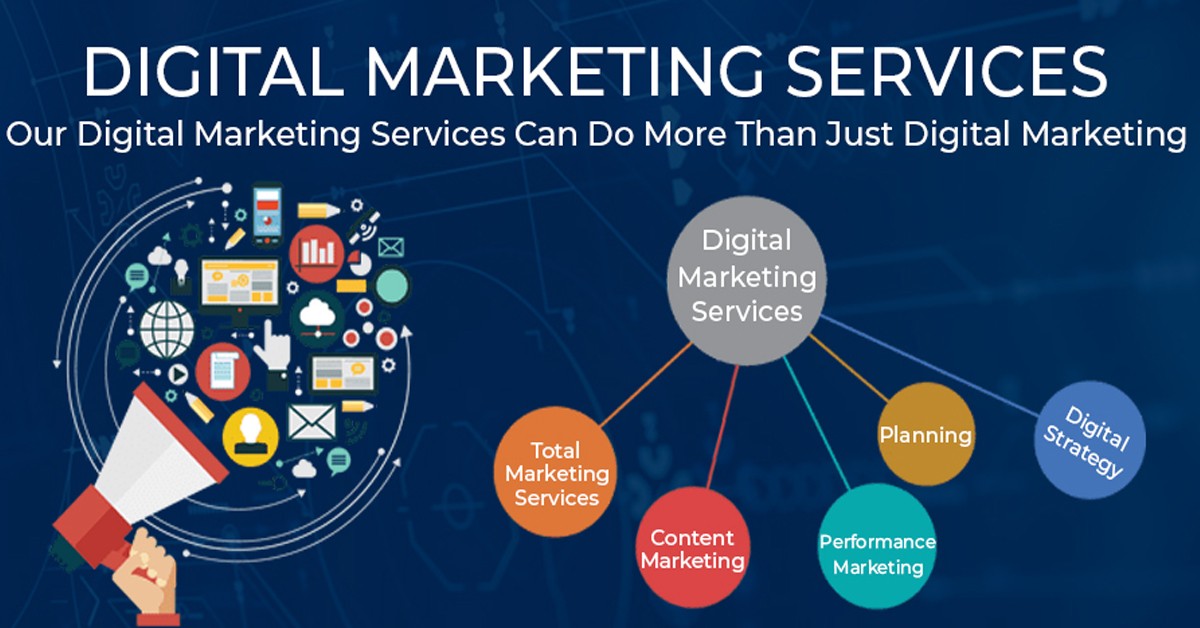Search Engine Optimization Strategies for Better Visibility
페이지 정보
작성자 Hortense 댓글 0건 조회 3회 작성일 24-11-21 08:09본문
gaining visibility online is more crucial than ever. Effective search engine optimization (SEO) is the key to standing out in the crowded online marketplace.
Effective search engine optimization (SEO) is the key to standing out in the crowded online marketplace. With search engines constantly evolving, staying ahead requires a thoughtful approach to seo marketing services local seo san diego affordable seo san diego cheap local seo services seo agency manteca strategies.
With search engines constantly evolving, staying ahead requires a thoughtful approach to seo marketing services local seo san diego affordable seo san diego cheap local seo services seo agency manteca strategies.
Understanding how to optimize content and leverage the right techniques can significantly boost a website's search rankings. Whether you're a business owner or a digital marketer, mastering these search engine optimization strategies can pave the way for enhanced online presence and success.
Whether you're a business owner or a digital marketer, mastering these search engine optimization strategies can pave the way for enhanced online presence and success.
Unveiling the Power of SEO Tactics
Understanding and applying effective SEO tactics is key to boosting online visibility and achieving higher search engine rankings. By leveraging these strategies, businesses can significantly enhance their digital presence.
By leveraging these strategies, businesses can significantly enhance their digital presence.
Keyword Research: Identifying and targeting relevant keywords helps attract the right audience and improves your site’s relevance in search results, driving more organic traffic to your pages.
On-Page Optimisation: Optimizing elements like meta titles, descriptions, and header tags ensures that your content is accessible and appealing to search engines, enhancing your site’s visibility.
Technical SEO: Improving site speed, mobile-friendliness, and fixing crawl errors can enhance user experience and help search engines index your site more effectively.
Content Creation: Producing high-quality, engaging content that answers users' questions and provides value can boost search rankings and encourage more site visits.
Backlink Building: Acquiring quality backlinks from reputable sites signals to search engines that your content is authoritative, which can improve your site’s credibility and search engine ranking.
By applying these tactics, businesses can optimize their online presence, attract more visitors, and improve their search engine performance.
Mastering On-Page SEO Techniques
On-page SEO techniques are fundamental to enhancing your website’s visibility and ranking on search engines. These techniques involve optimizing individual pages to make them more relevant and attractive to search engines. Key elements include optimizing meta titles and descriptions, using appropriate header tags, and ensuring that content is both informative and keyword-rich. Each of these elements contributes to how well a page ranks for specific search queries.
This includes the strategic use of keywords, the creation of high-quality content that provides real value to users, and the optimisation of images and multimedia elements. Moreover, ensuring that your website is easy to navigate and that internal links are well-structured further enhances user experience and SEO effectiveness.
Essential Off-Page SEO Practices
Off-page SEO practices are vital for building a website's authority and credibility outside of its own domain. These practices mainly involve activities that occur away from the website but are crucial for improving its ranking on search engines. One of the most effective off-page strategies is acquiring high-quality backlinks from reputable sites.
One of the most effective off-page strategies is acquiring high-quality backlinks from reputable sites. These backlinks act as endorsements from other websites, signaling to search engines that your content is valuable and trustworthy.
These backlinks act as endorsements from other websites, signaling to search engines that your content is valuable and trustworthy.
Influencer partnerships and guest blogging also contribute to building a positive online reputation and expanding your reach. Implementing these essential off-page SEO practices can enhance your site's visibility and ranking, leading to greater online success.
Crafting Content for Optimal SEO
Content is at the heart of effective SEO. Crafting content that resonates with both users and search engines involves more than just inserting keywords. It requires creating valuable, engaging, and well-structured content that meets the needs of your target audience. High-quality content should address relevant topics, answer common questions, and provide actionable insights that keep readers engaged.
Ensuring that content is easily readable and well-organized with clear headings and subheadings helps both users and search engines navigate it more effectively. Regularly updating and expanding content also keeps it fresh and relevant, which can positively impact search rankings.
Enhancing User Experience for Better Ranking
Improving user experience is key to achieving higher search engine rankings. A seamless, intuitive website not only delights visitors but also signals to search engines that your site offers value.
Optimize Site Speed: Fast-loading pages reduce bounce rates and keep users engaged. Implementing caching solutions and optimizing images can significantly improve loading times, enhancing overall user satisfaction.
Mobile-Friendliness: With increasing mobile usage, a responsive design that adjusts to various screen sizes is crucial. Ensure your site performs well on smartphones and tablets to reach a broader audience.
Ensure your site performs well on smartphones and tablets to reach a broader audience.
Intuitive Navigation: Clear and logical navigation helps users find information quickly. A well-organized menu and internal linking structure improve usability and encourage visitors to explore more pages.
Quality Content: Engaging and relevant content keeps users on your site longer. High-quality articles, videos, and infographics that address users' needs enhance their experience and increase the likelihood of return visits.
Effective Calls-to-Action: Strategic placement of calls-to-action guides users towards desired actions, such as signing up for newsletters or making a purchase. Clear, compelling CTAs improve conversions and user interaction.
By focusing on these aspects, a website can attract and retain more visitors, leading to greater online success.
Leveraging Keywords for Maximum Impact
Keywords are the foundation of SEO and leveraging them effectively can make a substantial difference in your website’s visibility. To maximize the impact of keywords, start by conducting thorough research to identify terms and phrases that are relevant to your audience and industry. This includes finding high-traffic keywords as well as long-tail variations that may have less competition but are highly targeted.
This includes finding high-traffic keywords as well as long-tail variations that may have less competition but are highly targeted.
Once identified, strategically incorporate these keywords into various elements of your website, including titles, headings, and throughout the content. However, avoid overstuffing keywords, as this can negatively impact readability and search engine ranking. Instead, focus on using keywords naturally and contextually within high-quality content that provides value to your readers.
Optimizing for Local Search Success
Local search optimization is essential for businesses that want to attract customers within a specific geographic area. This involves tailoring your SEO strategies to improve visibility in local search results. Key practices include creating and optimizing a Google My Business listing, ensuring that your business information is accurate and up-to-date, and encouraging customer reviews.
Incorporating local keywords into your website content and meta tags helps search engines understand your business’s location and relevance to local searches. Additionally, building local citations and engaging with the community through local events or partnerships can enhance your local SEO efforts.
Mobile-Friendly Design for SEO Gains
As mobile internet usage continues to rise, having a mobile-friendly website is crucial for SEO success. A mobile-friendly design ensures that your website functions well on smartphones and tablets, providing a positive user experience across all devices. Key aspects of mobile optimisation include responsive design, which adjusts the layout and content to fit different screen sizes, and fast loading times, which reduce frustration for mobile users.
Google prioritizes mobile-friendly websites in its search results, making it essential for maintaining high rankings. By focusing on mobile optimisation, businesses can improve their SEO performance, enhance user engagement, and ensure that their site is accessible to the growing number of mobile users.
Measuring SEO Performance and Adjustments
Regularly measuring SEO performance is essential for understanding the effectiveness of your strategies and making necessary adjustments. Various tools and metrics, such as Google Analytics and Google Search Console, provide valuable insights into how your website is performing in terms of traffic, rankings, and user behavior. Monitoring key performance indicators (KPIs), such as organic traffic, bounce rate, and conversion rates, helps assess the impact of your SEO efforts.
Based on these insights, you can make informed adjustments to your SEO strategy. This may involve refining keyword targeting, updating content, or improving technical aspects of your website. Regular analysis and optimisation ensure that your SEO strategies remain effective and aligned with search engine algorithms and user expectations.
This may involve refining keyword targeting, updating content, or improving technical aspects of your website. Regular analysis and optimisation ensure that your SEO strategies remain effective and aligned with search engine algorithms and user expectations.
Navigating the Latest SEO Trends
Staying current with the latest SEO trends is vital for maintaining and enhancing online visibility. Adapting to evolving search engine algorithms ensures a competitive edge in the digital market.
Adapting to evolving search engine algorithms ensures a competitive edge in the digital market.
AI and Machine Learning: Search engines increasingly use AI and machine learning to deliver more accurate search results. Understanding these technologies can help in refining SEO strategies to align with advanced algorithms.
Voice Search Optimisation: With the rise of voice-activated devices, optimizing for voice search is crucial. This involves focusing on natural language queries and conversational keywords to capture voice search traffic.
Mobile-First Indexing: As mobile usage grows, search engines prioritize mobile-friendly sites. Ensuring that your site is responsive and provides a seamless mobile experience is essential for better rankings.
E-A-T (Expertise, Authoritativeness, Trustworthiness): Google emphasizes content quality and credibility. Demonstrating expertise and building authority through well-researched content and authoritative backlinks can boost rankings.
Core Web Vitals: These metrics assess site performance, including loading speed and interactivity. Improving Core Web Vitals enhances user experience and can positively impact search engine rankings.
Staying ahead of these trends ensures that SEO strategies remain effective and responsive to changes in the digital landscape.
Incorporating effective search engine optimization strategies is essential for improving online visibility and achieving better search rankings. From mastering on-page and off-page techniques to optimizing for local search and mobile devices, every aspect plays a crucial role in driving organic traffic and enhancing user experience. By staying updated with the latest SEO trends and continually measuring performance, businesses can maintain a competitive edge and adapt to the evolving digital landscape.
For tailored advice and expert assistance in implementing these strategies, reach out to Affordable SEO – Manteca. Contact Affordable SEO – Manteca today at +12096006565 to start elevating your online presence and driving more traffic to your site.
 With search engines constantly evolving, staying ahead requires a thoughtful approach to seo marketing services local seo san diego affordable seo san diego cheap local seo services seo agency manteca strategies.
With search engines constantly evolving, staying ahead requires a thoughtful approach to seo marketing services local seo san diego affordable seo san diego cheap local seo services seo agency manteca strategies.
Understanding how to optimize content and leverage the right techniques can significantly boost a website's search rankings.
Unveiling the Power of SEO Tactics
Understanding and applying effective SEO tactics is key to boosting online visibility and achieving higher search engine rankings.
Keyword Research: Identifying and targeting relevant keywords helps attract the right audience and improves your site’s relevance in search results, driving more organic traffic to your pages.
On-Page Optimisation: Optimizing elements like meta titles, descriptions, and header tags ensures that your content is accessible and appealing to search engines, enhancing your site’s visibility.
Technical SEO: Improving site speed, mobile-friendliness, and fixing crawl errors can enhance user experience and help search engines index your site more effectively.
Content Creation: Producing high-quality, engaging content that answers users' questions and provides value can boost search rankings and encourage more site visits.
Backlink Building: Acquiring quality backlinks from reputable sites signals to search engines that your content is authoritative, which can improve your site’s credibility and search engine ranking.
By applying these tactics, businesses can optimize their online presence, attract more visitors, and improve their search engine performance.
Mastering On-Page SEO Techniques
On-page SEO techniques are fundamental to enhancing your website’s visibility and ranking on search engines. These techniques involve optimizing individual pages to make them more relevant and attractive to search engines. Key elements include optimizing meta titles and descriptions, using appropriate header tags, and ensuring that content is both informative and keyword-rich. Each of these elements contributes to how well a page ranks for specific search queries.
This includes the strategic use of keywords, the creation of high-quality content that provides real value to users, and the optimisation of images and multimedia elements. Moreover, ensuring that your website is easy to navigate and that internal links are well-structured further enhances user experience and SEO effectiveness.

Essential Off-Page SEO Practices
Off-page SEO practices are vital for building a website's authority and credibility outside of its own domain. These practices mainly involve activities that occur away from the website but are crucial for improving its ranking on search engines.

Influencer partnerships and guest blogging also contribute to building a positive online reputation and expanding your reach. Implementing these essential off-page SEO practices can enhance your site's visibility and ranking, leading to greater online success.
Crafting Content for Optimal SEO
Content is at the heart of effective SEO. Crafting content that resonates with both users and search engines involves more than just inserting keywords. It requires creating valuable, engaging, and well-structured content that meets the needs of your target audience. High-quality content should address relevant topics, answer common questions, and provide actionable insights that keep readers engaged.
Ensuring that content is easily readable and well-organized with clear headings and subheadings helps both users and search engines navigate it more effectively. Regularly updating and expanding content also keeps it fresh and relevant, which can positively impact search rankings.
Enhancing User Experience for Better Ranking
Improving user experience is key to achieving higher search engine rankings. A seamless, intuitive website not only delights visitors but also signals to search engines that your site offers value.
Optimize Site Speed: Fast-loading pages reduce bounce rates and keep users engaged. Implementing caching solutions and optimizing images can significantly improve loading times, enhancing overall user satisfaction.
Mobile-Friendliness: With increasing mobile usage, a responsive design that adjusts to various screen sizes is crucial.
 Ensure your site performs well on smartphones and tablets to reach a broader audience.
Ensure your site performs well on smartphones and tablets to reach a broader audience.Intuitive Navigation: Clear and logical navigation helps users find information quickly. A well-organized menu and internal linking structure improve usability and encourage visitors to explore more pages.
Quality Content: Engaging and relevant content keeps users on your site longer. High-quality articles, videos, and infographics that address users' needs enhance their experience and increase the likelihood of return visits.
Effective Calls-to-Action: Strategic placement of calls-to-action guides users towards desired actions, such as signing up for newsletters or making a purchase. Clear, compelling CTAs improve conversions and user interaction.
By focusing on these aspects, a website can attract and retain more visitors, leading to greater online success.
Leveraging Keywords for Maximum Impact
Keywords are the foundation of SEO and leveraging them effectively can make a substantial difference in your website’s visibility. To maximize the impact of keywords, start by conducting thorough research to identify terms and phrases that are relevant to your audience and industry.
 This includes finding high-traffic keywords as well as long-tail variations that may have less competition but are highly targeted.
This includes finding high-traffic keywords as well as long-tail variations that may have less competition but are highly targeted.
Once identified, strategically incorporate these keywords into various elements of your website, including titles, headings, and throughout the content. However, avoid overstuffing keywords, as this can negatively impact readability and search engine ranking. Instead, focus on using keywords naturally and contextually within high-quality content that provides value to your readers.
Optimizing for Local Search Success
Local search optimization is essential for businesses that want to attract customers within a specific geographic area. This involves tailoring your SEO strategies to improve visibility in local search results. Key practices include creating and optimizing a Google My Business listing, ensuring that your business information is accurate and up-to-date, and encouraging customer reviews.
Incorporating local keywords into your website content and meta tags helps search engines understand your business’s location and relevance to local searches. Additionally, building local citations and engaging with the community through local events or partnerships can enhance your local SEO efforts.
Mobile-Friendly Design for SEO Gains
As mobile internet usage continues to rise, having a mobile-friendly website is crucial for SEO success. A mobile-friendly design ensures that your website functions well on smartphones and tablets, providing a positive user experience across all devices. Key aspects of mobile optimisation include responsive design, which adjusts the layout and content to fit different screen sizes, and fast loading times, which reduce frustration for mobile users.
Google prioritizes mobile-friendly websites in its search results, making it essential for maintaining high rankings. By focusing on mobile optimisation, businesses can improve their SEO performance, enhance user engagement, and ensure that their site is accessible to the growing number of mobile users.
Measuring SEO Performance and Adjustments
Regularly measuring SEO performance is essential for understanding the effectiveness of your strategies and making necessary adjustments. Various tools and metrics, such as Google Analytics and Google Search Console, provide valuable insights into how your website is performing in terms of traffic, rankings, and user behavior. Monitoring key performance indicators (KPIs), such as organic traffic, bounce rate, and conversion rates, helps assess the impact of your SEO efforts.

Based on these insights, you can make informed adjustments to your SEO strategy.
 This may involve refining keyword targeting, updating content, or improving technical aspects of your website. Regular analysis and optimisation ensure that your SEO strategies remain effective and aligned with search engine algorithms and user expectations.
This may involve refining keyword targeting, updating content, or improving technical aspects of your website. Regular analysis and optimisation ensure that your SEO strategies remain effective and aligned with search engine algorithms and user expectations. Navigating the Latest SEO Trends
Staying current with the latest SEO trends is vital for maintaining and enhancing online visibility.
AI and Machine Learning: Search engines increasingly use AI and machine learning to deliver more accurate search results. Understanding these technologies can help in refining SEO strategies to align with advanced algorithms.
Voice Search Optimisation: With the rise of voice-activated devices, optimizing for voice search is crucial. This involves focusing on natural language queries and conversational keywords to capture voice search traffic.
Mobile-First Indexing: As mobile usage grows, search engines prioritize mobile-friendly sites. Ensuring that your site is responsive and provides a seamless mobile experience is essential for better rankings.
E-A-T (Expertise, Authoritativeness, Trustworthiness): Google emphasizes content quality and credibility. Demonstrating expertise and building authority through well-researched content and authoritative backlinks can boost rankings.
Core Web Vitals: These metrics assess site performance, including loading speed and interactivity. Improving Core Web Vitals enhances user experience and can positively impact search engine rankings.
Staying ahead of these trends ensures that SEO strategies remain effective and responsive to changes in the digital landscape.
Incorporating effective search engine optimization strategies is essential for improving online visibility and achieving better search rankings. From mastering on-page and off-page techniques to optimizing for local search and mobile devices, every aspect plays a crucial role in driving organic traffic and enhancing user experience. By staying updated with the latest SEO trends and continually measuring performance, businesses can maintain a competitive edge and adapt to the evolving digital landscape.
For tailored advice and expert assistance in implementing these strategies, reach out to Affordable SEO – Manteca. Contact Affordable SEO – Manteca today at +12096006565 to start elevating your online presence and driving more traffic to your site.
댓글목록
등록된 댓글이 없습니다.